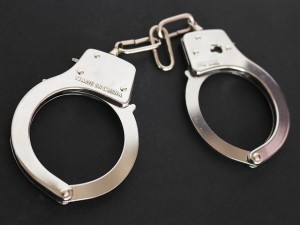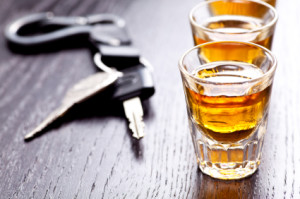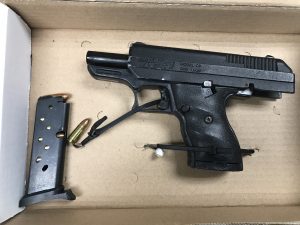 Maryland State Police troopers recently arrested a woman for allegedly pointing a gun from her BMW SUV at another motorist in Prince George’s County. The 37-year-old woman was arrested at her home the day after the alleged road-rage incident and charged with two counts of first-degree assault, one count of second-degree assault, use of a firearm in a crime of violence and loaded handgun in vehicle. She was held without bail by a District Court Commissioner but granted release on private home detention at her bail review in front of a judge. According to the MSP press release the woman allegedly pointed a firearm at another driver on Route 5 in PG County. The other driver apparently had a child in the vehicle at the time of the incident. Law enforcement officers were able to locate the suspect’s vehicle at her residence later that day and seized two loaded handguns from the BMW. MSP also stated that the woman attempted to destroy evidence by smashing her cell phone during a police interview, though she was not charged with obstruction of justice or tampering with evidence.
Maryland State Police troopers recently arrested a woman for allegedly pointing a gun from her BMW SUV at another motorist in Prince George’s County. The 37-year-old woman was arrested at her home the day after the alleged road-rage incident and charged with two counts of first-degree assault, one count of second-degree assault, use of a firearm in a crime of violence and loaded handgun in vehicle. She was held without bail by a District Court Commissioner but granted release on private home detention at her bail review in front of a judge. According to the MSP press release the woman allegedly pointed a firearm at another driver on Route 5 in PG County. The other driver apparently had a child in the vehicle at the time of the incident. Law enforcement officers were able to locate the suspect’s vehicle at her residence later that day and seized two loaded handguns from the BMW. MSP also stated that the woman attempted to destroy evidence by smashing her cell phone during a police interview, though she was not charged with obstruction of justice or tampering with evidence.
The defendant is set for a preliminary hearing in October at the Upper Marlboro District Courthouse. The preliminary hearing will likely not occur, as they rarely do in Prince George’s County. The State will likely nolle pros. the case on the preliminary date and then indict the matter in the circuit court. It does not appear that the defendant has any prior convictions in Maryland, so her defense lawyer may be able to argue for the felony assault to be dropped assuming the State can prove its case. The defendant must also focus on the charge for use of a firearm in a crime of violence, which is classified as a misdemeanor but carries a harsh 5-year mandatory sentence and a 20-year maximum penalty. The State and eventually the judge will certainly be concerned about the presence of firearms on a public highway and the fact that a child was inside the victim’s car. There may not be any direct proof that the gun was loaded at the time of the alleged assault, though the State may be able to establish this based on circumstantial evidence that it was loaded at the time police executed the search and seizure.
Under Maryland law a person can be charged with felony first-degree assault for causing or attempting to cause serious physical injury, strangling another person or committing an assault with a firearm. In firearm cases like this one, the defendant does not have to discharge the gun or use it to strike the victim to be charged. The only requirement is that the defendant commit a simple assault with a firearm, which can be any act that places the victim in fear of immediate harm. If you have been charged or are being investigated for assault or use of a firearm, contact Maryland gun crimes attorney Benjamin Herbst anytime for a free consultation. Benjamin specializes in aggravated assault with a firearm, domestic assault, possession of a firearm by a disqualified person or convicted felon and use of a handgun in a crime. He is available on short notice for bail reviews in all Maryland counties and can file a motion to recall your arrest warrant or bench warrant if you have missed court. Contact Benjamin 7 days a week at 410-207-2598 and learn what defenses may be available in your Maryland gun charge.
 Criminal Defense Lawyer Blog
Criminal Defense Lawyer Blog










